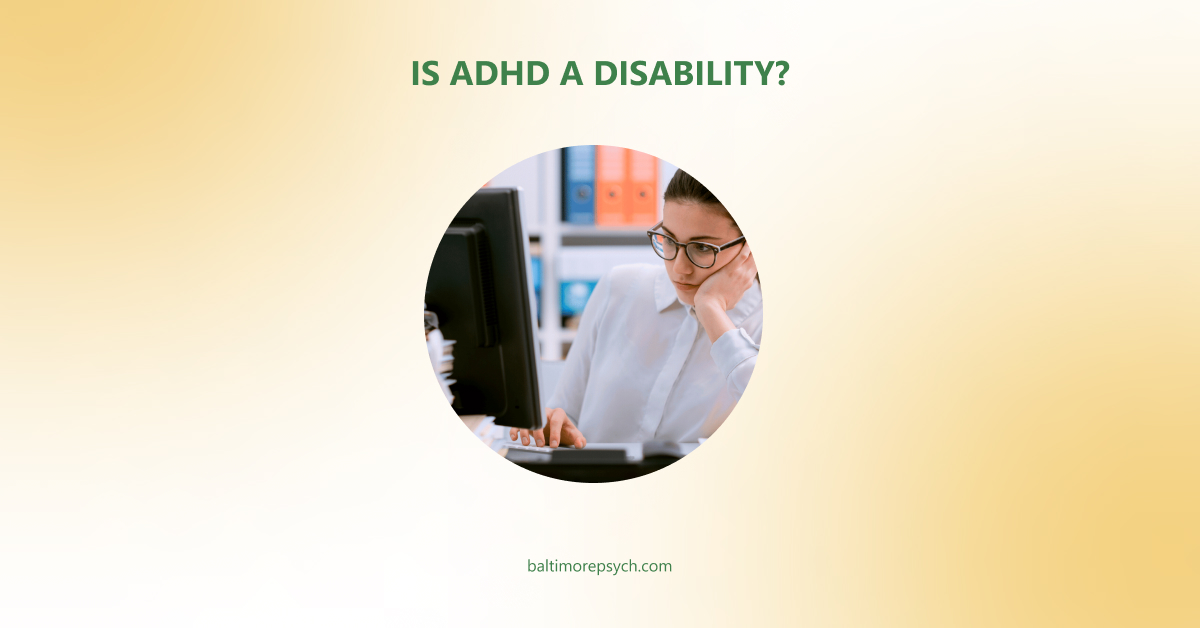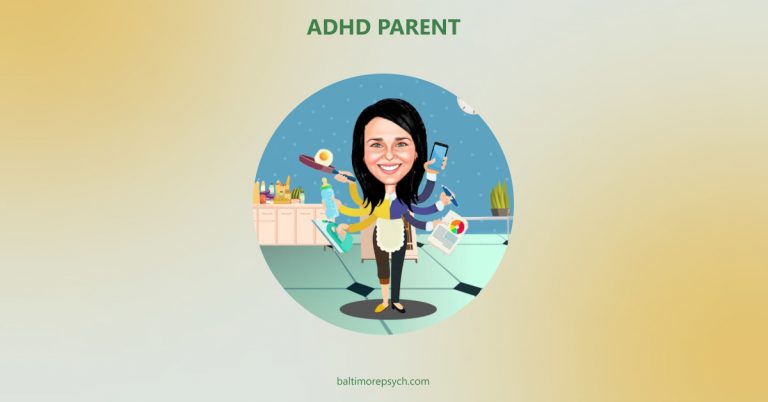ADHD, which stands for Attention-Deficit/Hyperactivity Disorder, is a condition that affects how people pay attention, control their impulses, and manage their activity levels. It is important to know that ADHD is considered a disability, meaning it can have a significant impact on a person’s daily life. In this article, we will explore what it means for ADHD to be a disability and the rights and benefits associated with it.
What Type of Disability is ADHD?
ADHD falls under the category of disabilities known as mental health disabilities. This means that it affects a person’s thinking, emotions, and behavior.
Conditions that Automatically Qualify You for Disability
There are some conditions that automatically qualify individuals for disability benefits, but ADHD is not one of them. However, this doesn’t mean that individuals with ADHD can’t receive disability benefits. It depends on how significantly the symptoms affect their ability to work or perform important daily activities.
Signs that You Will Be Approved for Disability
To be approved for disability benefits, individuals with ADHD need to show that their symptoms are severe and greatly impact their ability to function at work or in other important areas of life. If they can provide evidence from medical professionals and show how their ADHD affects their daily activities, it can increase their chances of being approved.
ADHD as a Mental Health Disability
ADHD is considered a mental health disability because it affects a person’s cognitive (thinking) and behavioral (actions) abilities. It’s important to understand that mental health disabilities are just as important and deserving of support as physical disabilities.
ADHD as a Workplace Disability
Rights of Individuals with ADHD
Under the Americans with Disabilities Act (ADA), individuals with ADHD have specific rights in the workplace. These rights include protection against discrimination and the right to request reasonable accommodations to ensure equal opportunities for employment. It is important for individuals with ADHD to be aware of their rights and assert them when necessary.
Reasonable Accommodations for Employees with ADHD
When it comes to reasonable accommodations for employees with ADHD, several options can help mitigate the challenges associated with the condition. Some specific steps and options that employers can consider include:
- Flexible Work Schedules
Allowing employees with ADHD to have flexible work hours can be beneficial. This accommodation can enable individuals to work during their most productive times and manage their energy levels effectively.
- Breaks and Time Management
Providing additional breaks throughout the workday can be helpful for employees with ADHD. This allows them to take short breaks to recharge and refocus, which can improve productivity. Implementing time management techniques, such as using timers or reminders, can also support better task organization and time allocation.
- Supportive Work Environment
Creating a workspace that minimizes distractions can be crucial for individuals with ADHD. Employers can consider providing a quiet or less stimulating workspace, utilizing noise-canceling headphones, or implementing office policies that promote a conducive work environment.
- Written Instructions and Visual Aids
Providing written instructions, checklists, and visual aids can assist employees with ADHD in understanding and completing tasks more effectively. These tools serve as reminders and can help individuals stay organized and focused on their responsibilities.
- Assistive Technologies
Introducing assistive technologies can enhance the productivity of employees with ADHD. For instance, task management apps, digital calendars, or reminder systems can be utilized to help individuals stay on track and manage their workflow.
ADHD as a School Disability
When it comes to ADHD as a disability in the educational setting, there are specific steps and options available to support students with ADHD. These steps aim to ensure that children with ADHD receive the necessary accommodations and support to thrive academically and socially. Here are some of the exact steps and options available:
Evaluation and Diagnosis
The process typically begins with a comprehensive evaluation by qualified professionals, such as psychologists or educational diagnosticians. This evaluation helps determine whether a student meets the criteria for an ADHD diagnosis and provides valuable information about the student’s specific strengths and challenges.
Individualized Education Program (IEP)
If a student is eligible for special education services under the Individuals with Disabilities Education Act (IDEA), an Individualized Education Program (IEP) is developed. The IEP is a legally binding document that outlines the student’s unique needs and specifies the accommodations, modifications, and support services that will be provided. These can include:
- Accommodations for Learning
Examples of accommodations for students with ADHD include preferential seating to minimize distractions, extended time for assignments or tests, the use of assistive technology, and breaking down complex tasks into smaller, manageable steps.
- Behavioral Supports
Behavioral interventions and supports can be included in the IEP to address impulsive behaviors, improve self-regulation, and promote positive social interactions. This may involve strategies such as social skills training, behavior contracts, or the implementation of a reward system.
- Parent and Teacher Collaboration
The IEP encourages collaboration between parents, teachers, and other relevant professionals to ensure that the student’s needs are met effectively. Regular communication and progress monitoring are key components of this collaboration.
Section 504 Plan
Students who do not qualify for special education services under IDEA may still be eligible for accommodations and support through a Section 504 Plan. This plan provides similar accommodations as an IEP but falls under Section 504 of the Rehabilitation Act of 1973. The plan outlines specific accommodations and support services needed to address the student’s ADHD-related challenges.
Classroom Adaptations and Modifications
Teachers can implement various adaptations and modifications to support students with ADHD in the classroom. These may include breaking down complex instructions, providing visual aids and cues, implementing behavior management strategies, and utilizing technology for organization and task completion.
Executive Functioning Support
Executive functioning skills, such as organization, time management, and planning, can be particularly challenging for students with ADHD. Schools can offer executive functioning support through strategies such as teaching organization techniques, providing planners or digital tools, and offering time management guidance.
It is essential for parents and guardians to collaborate closely with teachers, administrators, and the school’s support team to ensure that the necessary steps and options are implemented effectively for students with ADHD. Regular monitoring and evaluation of the student’s progress are crucial to make any necessary adjustments and ensure continued academic success.
Support Options for Individuals with ADHD
There are different types of support available for individuals with ADHD. This can include support groups, therapy, coaching, and educational resources that provide strategies for managing symptoms and improving overall well-being.
Managing ADHD Traits
- Understanding Society’s Perceptions of ADHD
Society may have different views and opinions about ADHD, but it’s important to remember that it is a real condition that affects people’s lives. It’s helpful to educate yourself and others about ADHD to promote understanding and reduce stigma.
- Emotional Reactions to an ADHD Diagnosis
Receiving an ADHD diagnosis can bring up a range of emotions. It’s normal to feel a mix of relief, validation, and perhaps even concern. It’s important to process these emotions and seek support from loved ones, support groups, or mental health professionals.
Strategies for Managing ADHD Traits
Managing ADHD traits requires a multifaceted approach that combines various strategies and options. Here are some specific steps and options that individuals with ADHD can consider:
-
Treatment Options and Medication
Consultation with healthcare professionals specializing in ADHD can help individuals explore treatment options. This may include medications specifically prescribed to manage ADHD symptoms. It is important to work closely with a medical professional to determine the most suitable treatment plan and monitor its effectiveness.
-
Cognitive Behavioral Therapy (CBT)
Engaging in therapy, particularly cognitive behavioral therapy (CBT), can provide valuable skills and techniques for managing ADHD symptoms. CBT helps individuals develop strategies to improve time management, organization, and impulse control. It also addresses emotional regulation and problem-solving skills.
-
Lifestyle Changes and Organization
Adopting healthy lifestyle habits can significantly impact ADHD symptoms. Regular exercise, a balanced diet, and sufficient sleep contribute to overall well-being and can help manage ADHD symptoms. Additionally, implementing organizational techniques such as maintaining a consistent routine, using planners or calendars, and breaking tasks into smaller, manageable steps can enhance focus and productivity.
-
Self-Advocacy and Communication
Individuals with ADHD can benefit from self-advocacy skills and open communication with their employers, colleagues, and support networks. Clearly expressing needs and challenges related to ADHD can help foster understanding and ensure appropriate support and accommodations are provided.
-
Mindfulness and Stress Reduction Techniques
Practicing mindfulness and stress reduction techniques, such as deep breathing exercises, meditation, or yoga, can improve focus and attention. These techniques promote relaxation and can help individuals with ADHD manage stress and anxiety that often accompany the condition.
Remember, strategies and options for managing ADHD traits can vary for each individual. It is essential to consult with healthcare professionals, therapists, and ADHD specialists to create a tailored approach that suits specific needs and circumstances.
Conclusion
ADHD is a disability that can impact various aspects of a person’s life. By understanding their rights, seeking help, and accessing appropriate support, individuals with ADHD can lead fulfilling lives. Remember, having ADHD doesn’t mean you can’t succeed—it just means you may need some extra support along the way. Don’t be afraid to reach out for help and embrace the possibilities of a brighter future.



